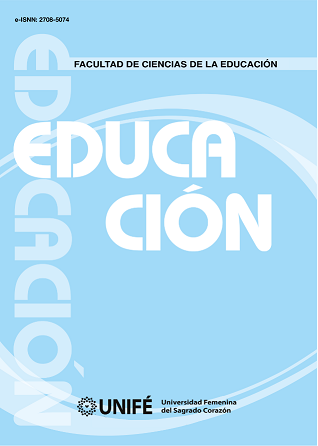5 metros de educación (peruana): planteamientos para abordar críticamente la calidad educativa en perspectiva
Keywords:
Educational quality, inequality, dependence, creativity, critica! reasoning, economical redistribution, commitment.Abstract
The title of this paper paraphrases the famous book of poems written by Carlos Oquendo de Amat ( 1905-1936), a poet born in Puno, who at age 22 published his one and only book: "Five meters of poems" ( 1927). The poet was inspired by the fresh and avant-garde trend of the early twentieth century. He brilliantly used a complex verbal irony to describe the daily life of the modern city of those years; a city tinged by trading for capitalism was consolidating in the West. The name "Five meters" is an irony of the books: design: a single paper sheet of approximately 5 meters, folded like an accordion that simultaneously offers a set of poems arranged one after the other, like a movie film stock, when opened. Thus, lyric - the
most sublime literary genre, according to the traditional canon - becomes associated to the myriad of goods circulating in the streets, shops and transactions. lrony therefore was made
against that world undergoing a process of dehumanization, where almost everything revolved around purchase and sale in the markets. Oquendo, as the greatest poets of all times
and places, knew that poetry does not sell both commercially and ethically speaking. Let this be a way to start the following text about the educational crisis and challenges in Peru
(not the only country). Let this be a reason to also honor a countryman of the poet: Jose Antonio Encinas ( 1888-1958), acknowledged intellectual and educator from Puno, who later
innovated education by launching his new educational project in the Centro Escolar de Varones 881 (School Center # 881 for Boys) in Puno, and from where he got the inspiration to write a book called "Ensayo de escuela nueva en el Perú". This paper is inspired in this creative and critica! path, starting, however, from the current juncture.



